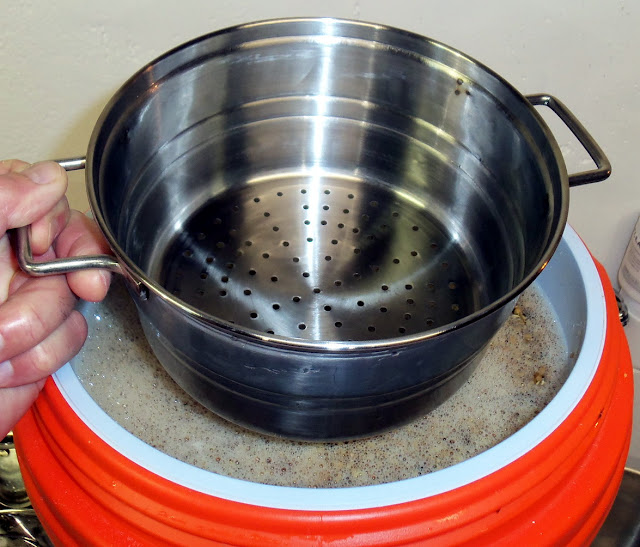I've been brewing a few months and caught the itch to go all grain eventually. I AM a DYIer so I love to build my own tools. I have searched about doing Mash Tun vs BIAB. I currently have been doing extract kits from NB and Midwest, liked how they came out, but want that extra kick, you know what I mean. But I have ran into some questions that I have found an overload of information but not really what I am looking for and I've always thought the best idea is to just ask instead of screwing things up in the future.
1) I have been using a 7.5 gallon SS turkey frying pot to do all my boils in. Do you think this is big enough to do all grain boils in? Keep in mind that I will always do 5 gallon batchs. Don't need to do anything bigger.
2) I have search through many posts about MLTs and understand that the couple of ways of doing it is letting it mash then slowly pulling the wort out and pouring it back over grains to filter out more times until it clears, and the other way is slowly adding your sparge water at the same flow as your strike water is emptying. I have found pictures of systems that have two coolers converted. The one up top flows into the second one which then flows into the boiling pot. My question is is this setup for the second type of filtering that slowly adds the sparge water at the same slow rate as the strike water leaving or why the double cooler setup.
I have many more things I want to build and get ready, but I've always been the type of person to know all my facts before diving into things so any information will help.
Thanks
1) I have been using a 7.5 gallon SS turkey frying pot to do all my boils in. Do you think this is big enough to do all grain boils in? Keep in mind that I will always do 5 gallon batchs. Don't need to do anything bigger.
2) I have search through many posts about MLTs and understand that the couple of ways of doing it is letting it mash then slowly pulling the wort out and pouring it back over grains to filter out more times until it clears, and the other way is slowly adding your sparge water at the same flow as your strike water is emptying. I have found pictures of systems that have two coolers converted. The one up top flows into the second one which then flows into the boiling pot. My question is is this setup for the second type of filtering that slowly adds the sparge water at the same slow rate as the strike water leaving or why the double cooler setup.
I have many more things I want to build and get ready, but I've always been the type of person to know all my facts before diving into things so any information will help.
Thanks




